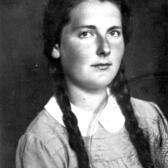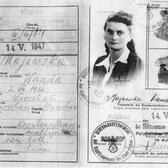Lenore J. Weitzman
Lenore J. Weitzman is the author of five books, including the award-winning The Divorce Revolution: the Unexpected Social and Economic Consequences for Women and Children in America which led to the passage of fourteen new laws in California and influenced national legislation on child support and pensions.
She was educated at Cornell University (B.S.), Columbia University (Ph.D. in Sociology) and Yale Law School (Russell Sage Post-doctoral fellowship) and was a professor at the University of California, Stanford University and Harvard University (where she received Harvard's Phi Beta Kappa distinguished teaching award) before assuming her current position as the Clarence Robinson Professor of Sociology and Law at George Mason University.
Weitzman's work on the Holocaust includes Women in the Holocaust, co-edited with Dalia Ofer (Yale, 1999), several articles on Jews who passed as non-Jews during the Shoah, and a forthcoming book, The Kashariyot, on the women couriers in the Jewish resistance.
She also teaches a cable TV class on the Holocaust that focuses on a weekly interview with a survivor to tell the story of the Shoah through the personal experiences of someone who was both an eyewitness to and participant in one chapter of the Holocaust.
Her honors include a Guggenheim fellowship; membership at the Institute for Advanced Study in Princeton; a Fulbright Fellowship in Israel; the Kroener fellowship in Holocaust studies at Oxford; and fellowships from Ford, Rockefeller, NSF, and the US Holocaust Memorial Museum in the United States. In June 2001 she received a medal as a “Pioneering Feminist Educator.”
In addition to her academic work, Lenore Weitzman was the chair of the Board of Directors of Women for Women International, a non-profit organization founded to help the women who suffered in the rape camps and concentration camps in the former Yugoslavia, from 1995 to 2000, and is currently on the national board of the Feminist Press.





